Do you dream of glory and money? The word "innovation" is on the lips of every entrepreneur and investor looking for something new. Competitions such as the Lépine contest, "Dragon's Den", "Mon invention vaut de l'or" or "Qui veut être mon associé" on TV, and even those aimed at children, showcase the genius of inventors. But don't rush into media exposure if you want to protect your invention!
Invention competitions: a springboard to seize!
Competitions give you the chance to showcase your ideas on several levels. In France, the Lépine competition is a benchmark in the field of innovation. Even if you don't win 1st prize, the mere exhibition of your work is an opportunity to communicate, and often to win over the public.
On television, in the press or with local authorities, inventors are regularly exposed to competition proposals. Rewards can range from simple exposure to funding for prototyping or marketing.
Competitions are a natural attraction for inventors. However, we must warn you about protecting your industrial property.
A beneficial but risky approach
As soon as you communicate publicly about your invention, you have to face the eyes of critics and competitors. Exposing your ideas and their applications creates risks for your interests. If you want to control how your inventions are used, the procedures set out in industrial property law are your allies:
- Soleau envelope
- patent application
- utility certificate
- the provisionalpatent introduced with the PACTE law.
Update 20/01/2019:
The provisional patent application is a provision introduced by the PACTE law. This procedure provides a streamlined way for start-ups, small businesses and researchers to protect their innovations. In an industrial property strategy, the provisional patent application can be a first step. The PACTE Act provides for this application to be converted into a utility certificate application.
Disclosure of the invention invalidates its patentability
Disclosing your invention before filing a patent application makes it unpatentable. This means that any patent application filed after this communication will be rejected by the INPI.
Publishing the results of your work in a scientific journal, talking about it at a conference or trade show, entering it in a competition... all actions that will later prevent you from protecting your invention.
Anyone wishing to make use of your work will be able to do so, without you being able to take legal action for infringement.
What should I do before entering an invention competition?
Interested in a call for projects?
Before registering, make sure you have the necessary arrangements in place to protect your invention.
patent registration is recommended. The sooner it's filed, the better! Granting takes several months, from drafting to the end of the procedure. But by starting your patent application, you gain priority for further action. Note that patent protection benefits the first applicant, not the first person to think of the invention!
The Soleau envelope: insufficient protection for an invention
You've probably heard of the Soleau envelope. Inexpensive and quick to set up, it enables you to record documents. Your work is time-stamped. However, it is not an industrial property title! So you can't sue for infringement on the basis of a Soleau envelope.
What a patent attorney can do for you
CPI is a regulated profession. The YesMyPatent.com online patent filing service, for example, is licensed by Touroude & Associates. The role of the CPI goes far beyond mere administrative assistance.
Support in obtaining patent
A patent attorney drafts your patent and assists you with all administrative formalities. Drawing up a patent with a CPI is a real advantage, as his dual expertise (in your technical field and in patent law) enables him to protect your invention in the best possible way. The description is accurate, and sufficiently developed to meet legal requirements.
Guide you to the best procedure
Depending on the field of your invention, your business development needs and your means, the IPC will guide you towards the most profitable procedure for you. Not sure whether to apply for a patent or a utility certificate? Is your invention the fruit of a joint effort by you and your team, and you don't know who to assign the patent to? The CPI answers your questions!
